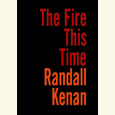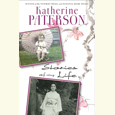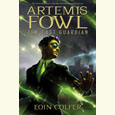Making the Words Disappear
Richard Bausch talks with Chapter 16 about the art of fiction
Richard Bausch has enjoyed considerable acclaim for his eleven novels—most recently for Peace, a finely wrought tale of American soldiers in World War II Italy, which won the 2009 Dayton Literary Peace Prize for Fiction. Bausch’s short stories, however, seem to draw even more ardent praise, and he is consistently named as the one of our best writers of realist short fiction. Donna Seaman, writing for The Los Angeles Times, described Bausch’s stories as “concentrated works of tremendous resonance.” Something is Out There, the collection that inspired Seaman’s admiring words, is among the finalists for the 2010 Los Angeles Times Book Prize for Fiction, vying with highly lauded works such as Jonathan Franzen’s Freedom and Jennifer Egan’s A Visit from the Goon Squad. The prize will be awarded April 29 in Los Angeles. Something is Out There will be released in paperback next month.
Bausch is a renowned teacher of creative writing, both in and out of the academy. He currently teaches in the M.F.A. program at the University of Memphis, where he holds the Lillian and Morrie A. Moss Chair of Excellence, and he often serves on the faculty of writers’ conferences such as Sewanee and Bread Loaf. He teaches a community workshop in Memphis each year, and he was an instructor for Operation Homecoming, a National Endowment for the Arts writing program for U.S. military personnel.
A member and former Chancellor of the Fellowship of Southern Writers, Bausch will appear at the sixteenth Biennial Conference on Southern Literature in Chattanooga April 14-16. He answered questions from Chapter 16 by email.
Chapter 16: You always say your subject as a writer is trouble, and love is often a source of trouble in Something is Out There. It’s their degree of courage, and not any redemptive power of love, that seems to determine the fate of the characters. How do you see those two forces—love and courage—operating in these people’s lives?
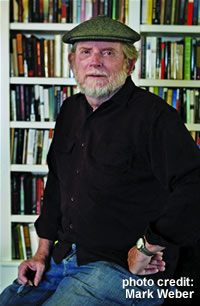 Bausch: A thoroughly brilliant question, but I can’t really answer it except with the stories themselves, in the words of the stories themselves: the stories, finally, are what I have to say about all that, and in some instances what I have to say is not practically evident to me—I will say that the true subject of all fiction is trouble, and so there is nothing particular to me in the statement.
Bausch: A thoroughly brilliant question, but I can’t really answer it except with the stories themselves, in the words of the stories themselves: the stories, finally, are what I have to say about all that, and in some instances what I have to say is not practically evident to me—I will say that the true subject of all fiction is trouble, and so there is nothing particular to me in the statement.
Chapter 16: One of the stories, “Sixty-five Million Years,” is about a failure that occurs in the context of a priest’s faltering vocation. Faith is a subject you haven’t written about a lot. What engendered that story?
Bausch: I’m not sure. I know it took more than six years to solve it. And I’m not sure it is solved as well as it ought to be. To my mind the priest’s realization of his failure to think outside his own needs is where the story is; and his realization of it brings him to the cold consideration of the stars, those infinitely distant spaces, and the crisis of faith that is opening out with the last line of the story. In that story, his troubles are really only beginning.
Chapter 16: “Sixty-five Million Years” appeared in a somewhat different version in Narrative Magazine a few years ago. How often do you feel a desire to revisit and change a story?
Bausch: While I’m composing it, many dozens of times, hundreds of times. Over and over. After it is published, seldom. I do read through what I have published from time to time because I have a terror of repeating myself. I don’t want anything about this to become automatic.
Chapter 16: You write fiction of every length, from short stories to hefty novels, and you’ve been successful with every form. What inspires you to pursue one or the other? When you get an idea, do you always know what size project it’s going to be?
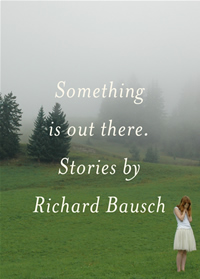 Bausch: The length and the gestures which will make up any given expression for me are always determined by the story itself, whatever it is. I never set out to write a short fiction or a novel. I set out, always, to follow a thread of narrative that has suggested itself, either through a character’s voice or circumstance, a line of authorial speech, the first line of spoken dialogue, or whatever tricks the thing into life and motion. But I almost never know where it will lead. I thought my novel Rebel Powers would probably be a small story of about ten pages when I had been working on it in those first days and weeks—then I thought maybe it would be a novella, and finally knew it had to be a novel because of what still remained to do in terms of telling the story.
Bausch: The length and the gestures which will make up any given expression for me are always determined by the story itself, whatever it is. I never set out to write a short fiction or a novel. I set out, always, to follow a thread of narrative that has suggested itself, either through a character’s voice or circumstance, a line of authorial speech, the first line of spoken dialogue, or whatever tricks the thing into life and motion. But I almost never know where it will lead. I thought my novel Rebel Powers would probably be a small story of about ten pages when I had been working on it in those first days and weeks—then I thought maybe it would be a novella, and finally knew it had to be a novel because of what still remained to do in terms of telling the story.
Chapter 16: You’ve said in several interviews that it’s essential for a writer to have a good ear. Can you explain why it’s so important, and how it applies to your own writing?
Bausch: Well, Hemingway talked about having a very good bullshit detector, and that is indeed part of it. But the good ear, for me, means a strong sensitivity to how the language sounds its way into shape and meaning—the song of it, and the noise and ruckus of it, too. And the way people are and what they reveal in how they talk—that, too. For me as a writer, I want to try as best I can to make the words themselves disappear, so that there is only the characters in the round of their worries and their complications, and the reader loses sight of the fact that he/she is reading.
Chapter 16: You’ve been a writer for a long time and enjoyed a lot of success. Do you still feel trepidation when you sit down to work? Do you still grieve over failures?
Bausch: “I am always convinced that someone else must surely be better prepared to do this, and do it well.” William Maxwell said that. “I’ll let you be in my dream if I can be in yours.” Bob Dylan said that. The answers are: Yes. And yes. I still feel trepidation through the whole process and it is always heavy with the grieving because one fails at it continually until it finally starts to be what it means to be.
Chapter 16: In your Ten Commandments for Writers, you advise writers to allow writing to become a habit, but do you ever put aside your own writing for a period of time, just to rest and regroup?
Bausch: Never for very long. And it’s never to rest and regroup. I do not believe in that. I believe that as soon as I let more than a few days go by without work of some kind on something, the whole instrument I write with, whatever it is inside that permits me to do it, begins the process of atrophy, and so I am usually pretty steadily at work each day—on something.
Chapter 16: As a reader, what delights you in a work of fiction? What bores or exasperates you?
Bausch: What delights me is good prose, governed, clear, lucid prose. I’m presently reading Harriet Doerr’s Consider This, Senora, among others, and I’m very much enjoying it. What bores me is theme at the expense of story, and gymnastics on the page for the sake of drawing attention to the writer. I don’t mind wild gymnastics if they are carrying with them the necessity of expression that is always there in a work of fictive art—something coming so deeply from the temperament and being of the writer that it cannot be other than what it is.
Chapter 16: Who are the writers you wish were more widely read?
Bausch: Oh, God—there are so many. George Garrett, Mary Lee Settle, J.R. Salamanca, Vance Bourjaily, Stephen Becker, Thomas Williams, Ellen Douglas, my brother Robert, Allen Wier, so many, too many to name. Wonderful, wonderful writers.
Chapter 16: You’re a member and former Chancellor of the Fellowship of Southern Writers. What does it mean to you to be a Southern writer? Do you see your work as part of a regional literary tradition?
Bausch: Well, I used to say that I was not a joiner, and never belonged to any fraternities, was never in boy’s club or any of the usual organizations that we end up in growing up. But when the Fellowship people—Mary Lee Settle and George Garrett and Eudora Welty—asked me to join that fellowship I said yes because of them, because of who they were to me and also flatly because of who they were.
Concerning the Southern part, well, it’s just where I was born and mostly grew up and where I’ve spent roughly fifty years. I never think about it when I’m working, and I’ve set novels in Minnesota and New York and England and Africa, too, and I must say that for me “place” as people use it to talk about literature just doesn’t have much meaning or pull. I mean it’s just not that interesting to me. The “place” in my fiction is interior, the inner landscape. This is not to say that there aren’t writers who get to both elements–the inner landscape and the outer “place”—with style. And I take the trouble to give a sense of the surrounding country usually—I just don’t ask it to be anything but functioning backdrop. If that makes sense. I think someone who sets out to sound ‘Southern’ is making a terrible mistake.
Click here to read Chapter 16’s profile of Richard Bausch.

